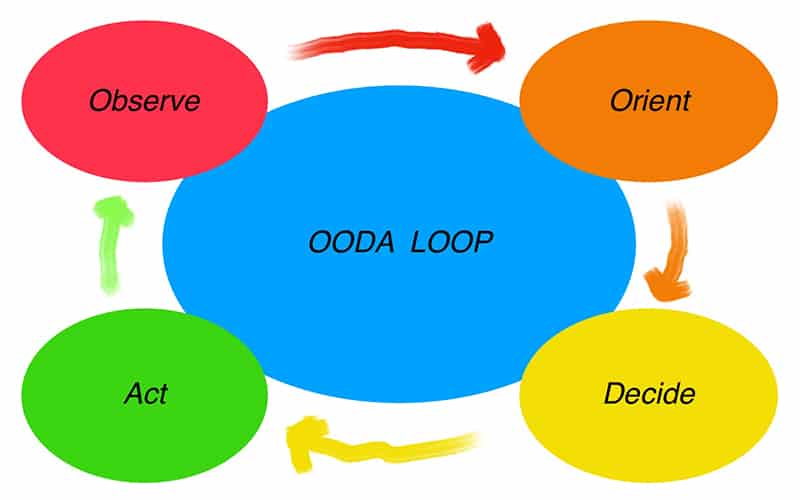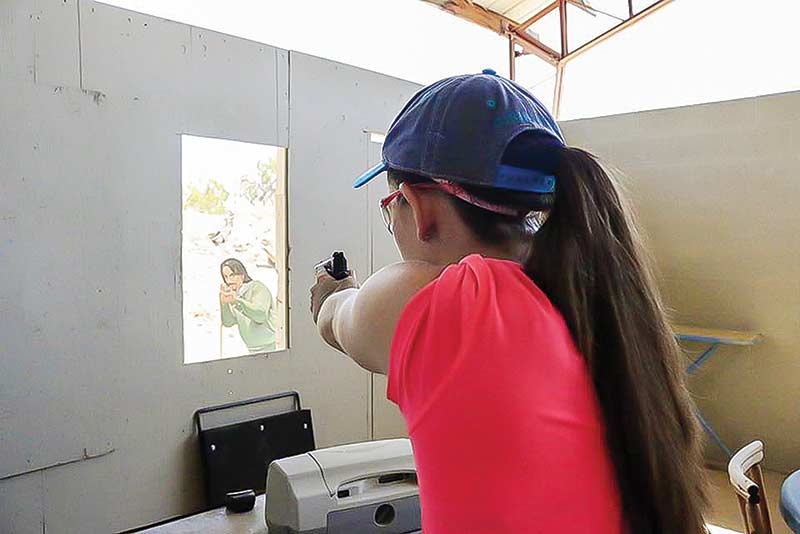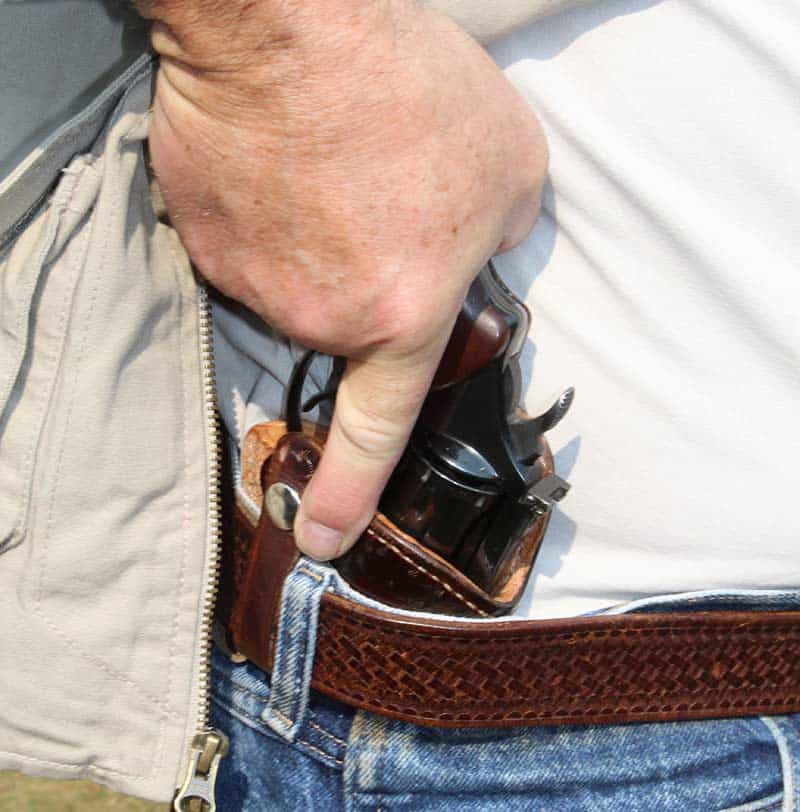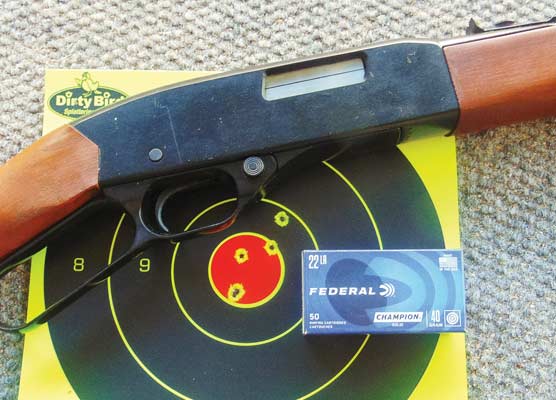Observe, Orient, Decide, and Act
The OODA Loop
Let’s face it; a lot of ego is attached to self-defense. We train for the possibility of a violent encounter, imagine the potential scenarios and how we would respond. We’ve done it so much our brain’s automatic response is to engage the enemy immediately. Some people look forward to that possibility and are confident in their ability to come out on top.
I responded to a call of an armed assailant with a fellow police officer one night. His reaction to the situation was a wide and eager grin. It was unsettling to me, and I was on his side. I tell this story occasionally to fellow shooters, and they always respond with laughter and maybe a comment like, “He’s a badass and knows it.” I listen to people talk at the range about two shots to the chest and one to the head as if it will be that simple to end any conflict. Their bravado is likewise disturbing and demonstrates a total lack of understanding about how combat situations unfold and how to properly respond.
Muscle Memory
A lot of people reading this article have gone through training, whether it be basic marksmanship or responding to an active-shooter situation. It doesn’t matter what training you’ve received, the point of it is to learn to perform a specific skill efficiently without having to think about each step in the process. It is colloquially called “muscle memory.” Once we’ve repeatedly performed a skill, it just becomes automatic. Then we can start learning the next skill in our training plan until we’re equally proficient with that one. One skill builds upon the previous one, and we soon find we have a set of skills we can draw upon as required. It’s a never-ending progression. You may be asking what is wrong with that. There’s nothing inherently wrong. It’s what we’re supposed to do. The problems arise when we encounter a real situation and must use the skills we’ve developed.
I remember reading about a police-shooting incident where an off-duty police officer had stopped by the local convenience store to pick up a few items on his way home. As luck would have it, he arrived at the precise moment the store was being robbed at gunpoint. The officer’s instincts kicked in, and he responded to the incident. He attempted to stop the suspect from fleeing when the unthinkable happened. The suspect shot the officer’s young daughter who happened to be in the car with him. It’s a sad example, but it’s one that really sends the message home that an automatic response may not be the best one. What the officer missed was deciding on the best option among those available to him.
Acting Is The Last Step
The ultimate goal of the training we do and the skills we perform is to be able to do them without thought. This doesn’t mean we go into a situation without thinking. The military and many police departments use the OODA Loop. It’s a method for evaluating and responding to ever-changing situations. OODA stands for Observe, Orient, Decide, and Act. Notice Act is the last step in the process. First, you’ve got to Observe what is happening. Next, you must Orient yourself within the context of the situation and evaluate the options available. Then you Decide which option is best based on what you’ve seen. Finally, you Act or respond to the incident. The OODA Loop forces you to think first, thus increasing the odds you’re taking the right action. This is where the training becomes important. You’ve got to be able to Act without thinking about it. Your response is somewhat automatic, leaving your mind free to think about other things. I said “Finally, you Act,” but that’s not the end of it. Because every action you take will spur a reaction by the suspect(s), forcing you back into the OODA Loop to again go through the process to decide and act on the best response. This happens again and again until the situation is resolved.
It’s easy to get caught up in the skills we’re learning and think they are important in and of themselves. At the risk of sounding like Yoda, the point of learning skills is to be able to forget them. When you can do that, you free your mind so it can focus on what’s really important — the ability to think clearly and make great decisions. Just like a Jedi, you’ve got to train your body for the skills, but also train your mind on how best to use those skills based on the situation. If you want to know my idea of the single-most important combat skill you can develop, it is the ability to think clearly during a critical incident. A good training plan is how you get there.

Sign up for the Personal Defense newsletter here:





